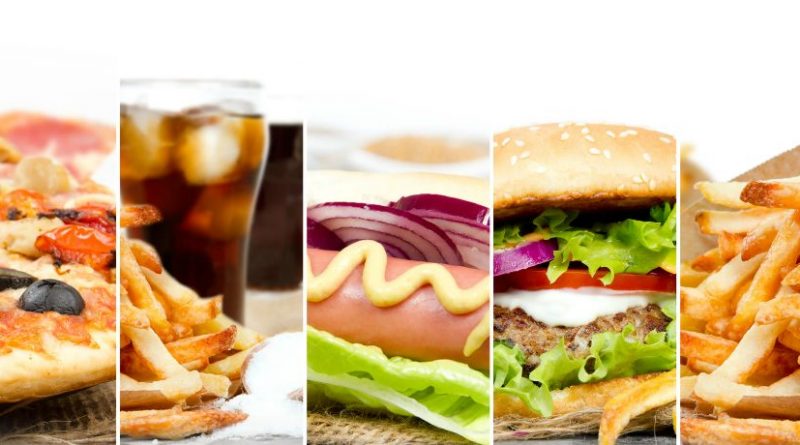Groundbreaking study finds that a 10% increase in ultra-processed foods in the diet is linked to a 12% increase in cancer.
New research led by a group of scientists based at the Sorbonne in Paris reveals what many of us have likely assumed instinctively: Ultra-processed foods increase the risk of cancer.
The researchers used data collected from some 105,000 adults who are part of the French NutriNet-Santé cohort study – they analyzed the medical records and eating habits, and created a database of 3,300 different food items.
The Guardian reports:
They found that a 10% increase in the amount of ultra-processed foods in the diet was linked to a 12% increase in cancers of some kind. The researchers also looked to see whether there were increases in specific types of cancer and found a rise of 11% in breast cancer, although no significant upturn in colorectal or prostate cancer.
“If confirmed in other populations and settings, these results suggest that the rapidly increasing consumption of ultra-processed foods may drive an increasing burden of cancer in the next decades,” notes the study, which has been published in the BMJ.
The team used the classification of “ultra-processed food” as defined by Nova, a group of scientists in Brazil who have created the classification tool for nutrition and public health research, policy and action. The system is comprised of four groups: Unprocessed or minimally processed foods; processed culinary ingredients; processed foods; and ultra-processed food and drink products. Nova describes the fourth group as:
Industrial formulations typically with five or more and usually many ingredients. Such ingredients often include those also used in processed foods, such as sugar, oils, fats, salt, anti-oxidants, stabilisers, and preservatives. Ingredients only found in ultra-processed products include substances not commonly used in culinary preparations, and additives whose purpose is to imitate sensory qualities of group 1 foods [unprocessed or minimally processed foods] or of culinary preparations of these foods, or to disguise undesirable sensory qualities of the final product. Group 1 foods are a small proportion of or are even absent from ultra-processed products.
Typical ultra-processed products include: carbonated drinks; sweet or savory packaged snacks; ice-cream, candies; mass-produced packaged breads and buns; margarines and spreads; cookies, pastries, cakes, and cake mixes; breakfast cereals, cereal and energy bars; energy drinks; milk drinks, sweetened yogurts and fruit drinks; cocoa drinks; meat and chicken extracts and instant sauces; infant formulas; “health” and slimming products such as powdered or fortified meal and dish substitutes; and many ready to heat products including pre-prepared pies and pasta and pizza dishes; poultry and fish nuggets and sticks, sausages, burgers, hot dogs, and other reconstituted meat products, and powdered and packaged instant soups, noodles and desserts.
“The results are very strong – very consistent and quite compelling,” Mathilde Touvier, lead author of the study says.
“But we have to be cautious,” she adds. “It is the first study. We should not be alarmist. These results need to be confirmed in other prospective studies.”
Interestingly, the mechanics of the cancer risk could not be ascertained, noting specifically that the lack of nutritional value did not seem to be the smoking gun.
“We did a statistical analysis to try to see if the whole association was only due to poor nutritional quality,” Touvier says. “But the results do not depend on that.”
“We need to understand the mechanism,” she adds. “Maybe in the future we will have an idea whether one or two molecules are the problem and not all the ultra-processed foods.”
The massive database they created – which includes all the additives in specific foods, by commercial names and brands – will prove to be a valuable tool for research in the years to come.
And honestly, it can’t come soon enough. As the study notes, “After undergoing multiple physical, biological, and/or chemical processes, these food products are conceived to be microbiologically safe, convenient, highly palatable, and affordable.” Meanwhile, surveys in Europe, the US, Canada, New Zealand, and Brazil suggest that ultra-processed food products contribute to between 25 percent and 50 percent of total daily energy intake.
With all of this in mind, perhaps the most prudent thing to do is to keep Nova’s advice in mind:
Opt for water, milk, and fruits instead of soft drinks, dairy drinks, and biscuits. Do not replace freshly prepared dishes (broths, soups, salads, sauces, rice and beans, pasta, steamed vegetables, pies) with products that do not require culinary preparation (packaged snacks and soups, instant noodles, pre-prepared frozen dishes, sandwiches, cold cuts and sausages, industrialised sauces, ready-mixes for cakes). Choose homemade desserts and avoid industrialised formulations.
Or to put it more simply, remember the Nova golden rule: Always prefer natural or minimally processed foods and freshly made dishes and meals to ultra-processed products.












